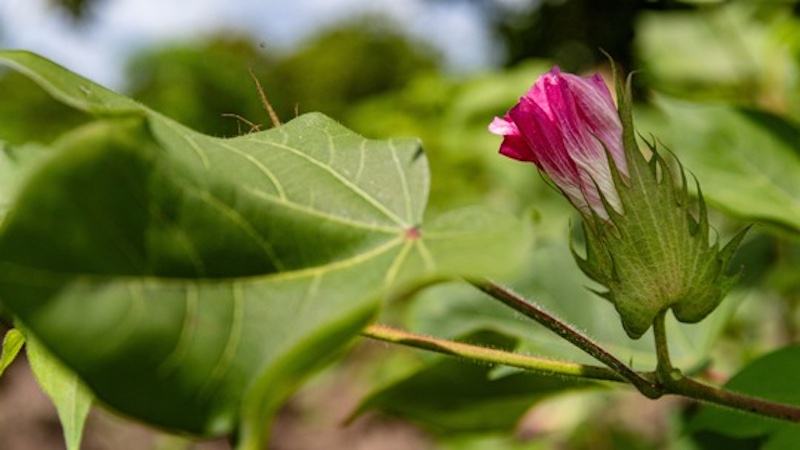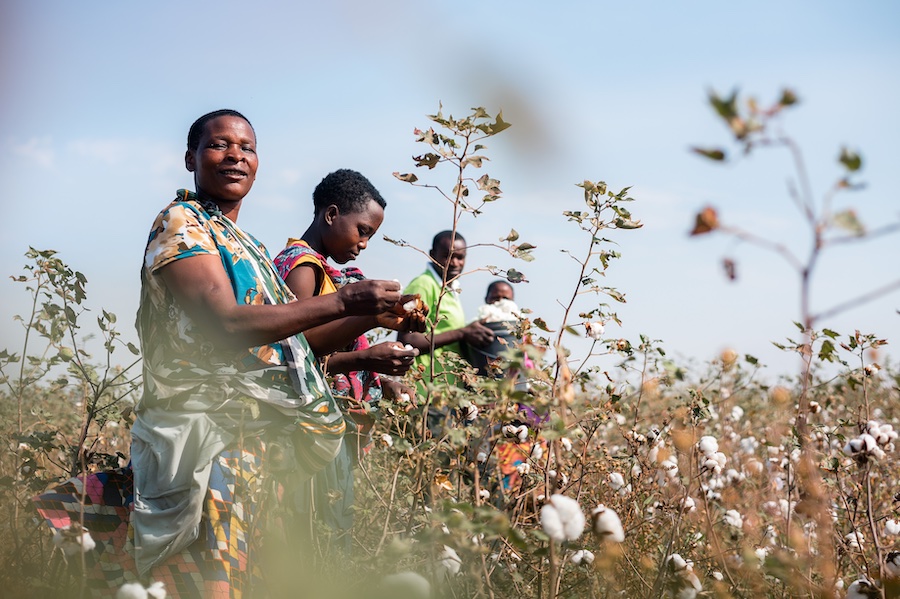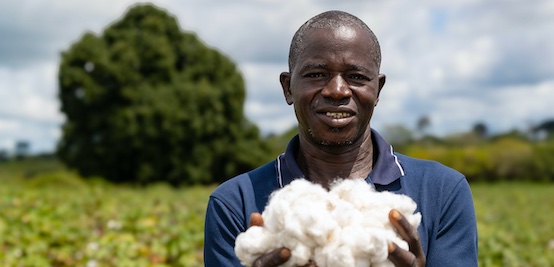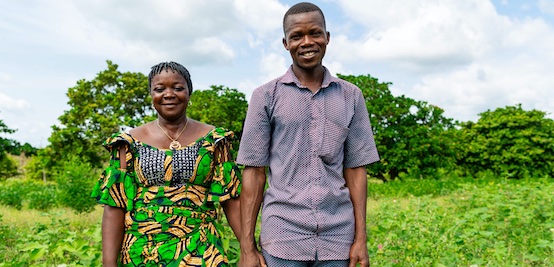#Raw Materials
Cotton made in Africa supports the development of West African textile production in Benin

A major step forwards in the development of an independent and sustainable textile industry in Benin is marked by the recent construction of a textile production centre south of Cotonou. According to the textile park, 100 percent of the cotton used is verified by Cotton made in Africa; this underlines the sustainability standard’s position in the region. “African textile production is gaining momentum, and Cotton made in Africa makes a major contribution to ensuring that sustainability plays a key role,” explains Gerlind Baz, a senior project manager at the Aid by Trade Foundation, during a visit to Benin, adding, “We are very pleased to support the development of a West African textile production sector here in Benin and to thereby further promote market access for sustainably produced cotton from Africa.”
Cotton made in Africa is a key player in sustainable cotton production in the region and an important partner for the global textile trade. Thirty percent of cotton production across Africa is verified under Cotton made in Africa. The standard is active in eleven countries south of the Sahara, working with 20 cotton companies and around 900,000 small-scale farmers. In Benin, cotton has been grown in accordance with the CmiA standard since the initiative was founded in 2005. Together with three cotton companies in Benin, AbTF is working through its CmiA and CmiA Organic standards to improve market access for cotton producers and to make people more resilient to the effects of climate change while protecting the environment and biodiversity. Worldwide, the standard has more than 2,700 partners in the textile chain.
On the occasion of World Cotton Day in early October, a delegation of AbTF representatives visited the CmiA project country of Benin together with partners from GIZ (Deutsche Gesellschaft für Internationale Zusammenarbeit) and PAN UK (Pesticide Action Network, United Kingdom). In addition to World Cotton Day events, the programme included a visit to the textile park and to areas where CmiA Organic cotton is grown. In the Aklampa area, the project group met cotton farmers who grow cotton in accordance with the CmiA Organic standard and who are part of the Growing Benin’s Organic Cotton Sector project. The project’s aim is to improve the living conditions of small-scale farmers by supporting them in the transition to the cultivation of organic cotton in compliance with the CmiA Organic standard. Around 45,500 adults and children are expected to benefit indirectly from the project. By expanding market access through CmiA, the project plans to secure long-term investments in the organic cotton sector in Benin. The project is being co-ordinated by PAN UK, implemented under the leadership of the non-governmental organisation OBEPAB (Organisation Béninoise pour la Promotion de l’Agriculture Biologique), and supported both financially and substantially by AbTF and the cotton trading company Paul Reinhart AG; it is also supported by GIZ as part of its Sub-Saharan Cotton Initiative, with funding from the German Federal Ministry for Economic Cooperation and Development (BMZ).
Read more about the textile parc here:
https://gdiz-benin.com/fr/parc-textile/

















